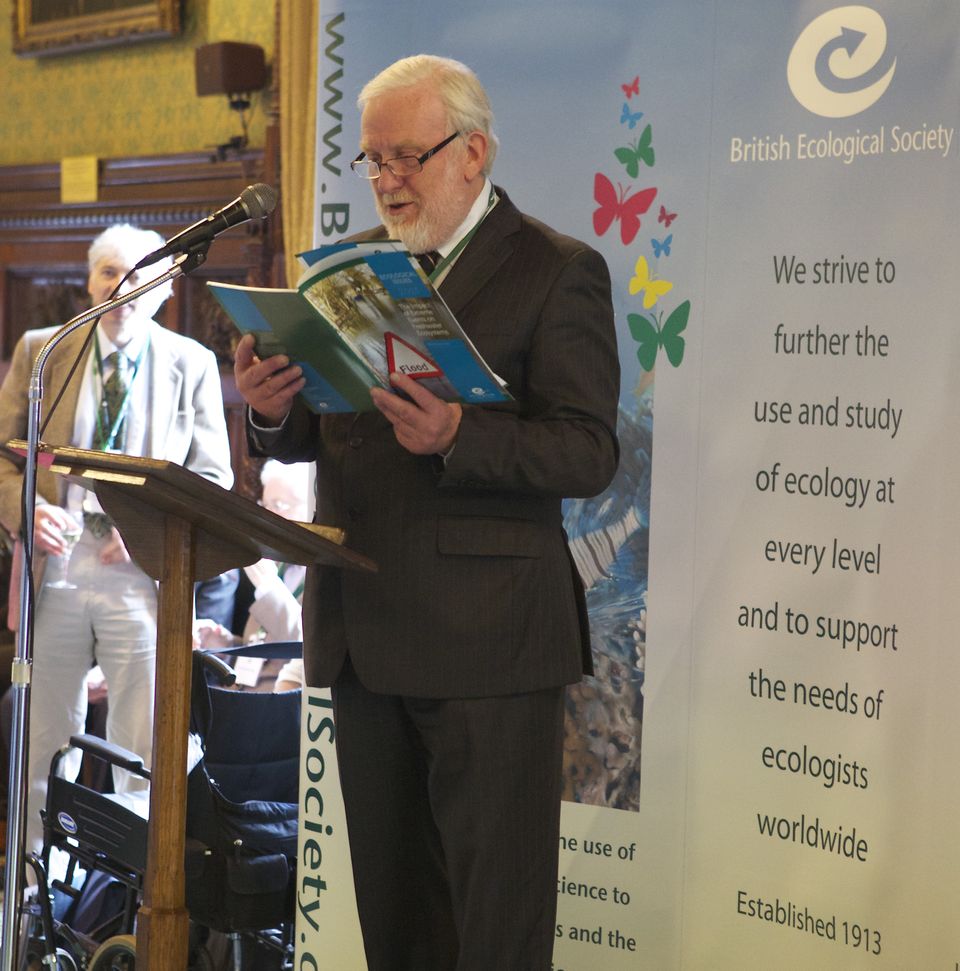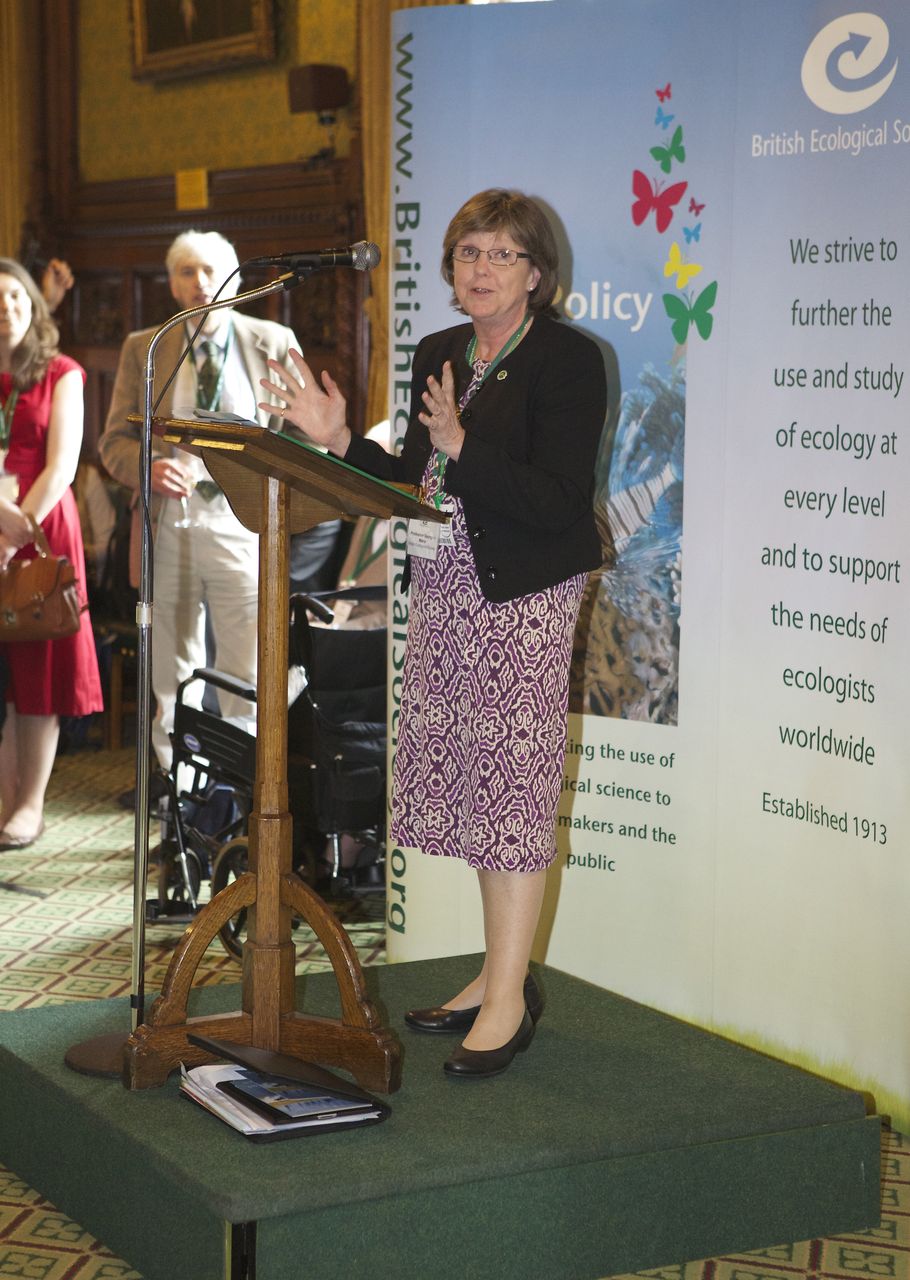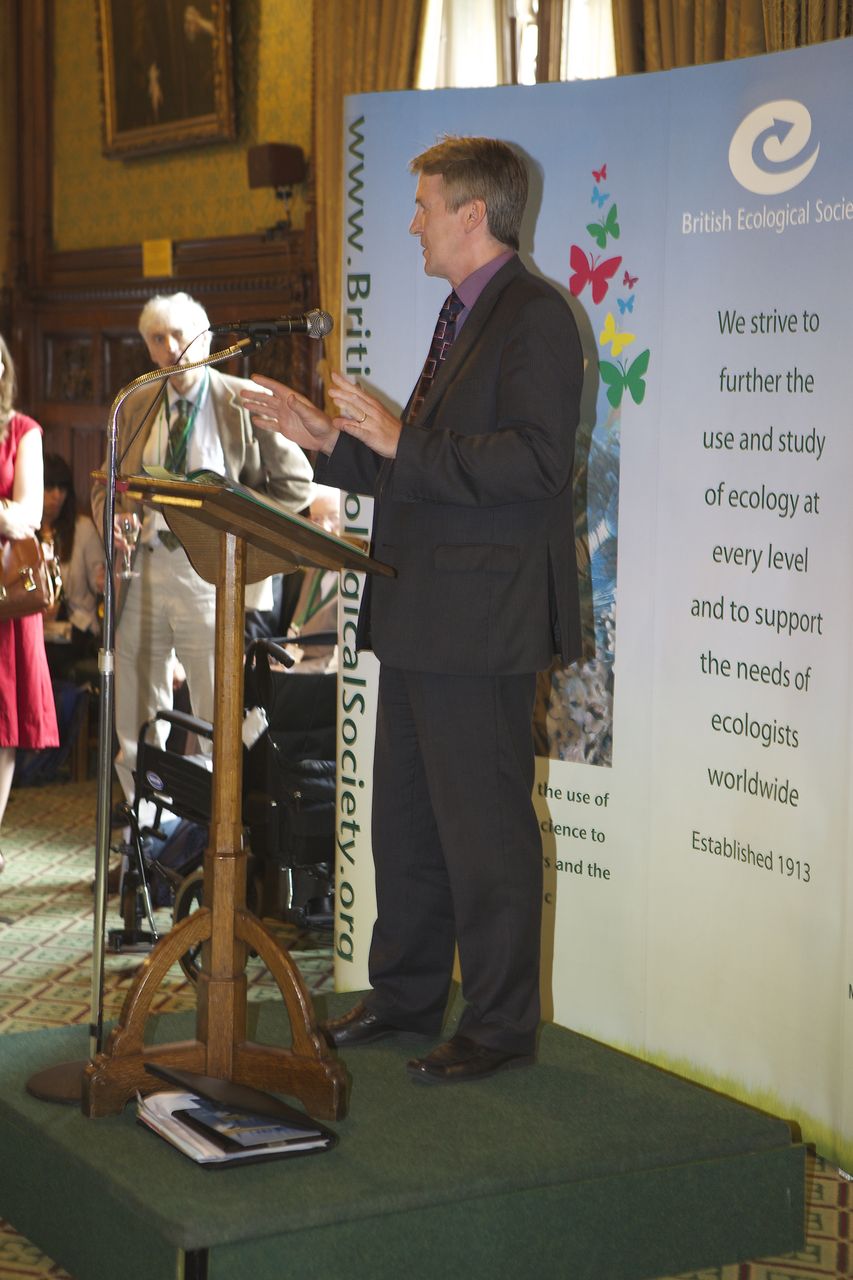Ecological Issues series is relaunched
As part of the BES’s centenary events, the newest addition to our Ecological Issues series – ‘The Impact of Extreme Events on Freshwater Ecosystems’ was launched at a parliamentary reception in Westminster. The event, which was sponsored by Andrew Miller MP, Dr Julian Huppert MP and Stephen Metcalfe MP, saw over 100 people attend, and gave a fitting launch to the report and the much needed information it provides about the problems freshwater environments face from extreme weather events.
Andrew Miller MP introduced the document and congratulated the BES on its centenary. BES President Professor Georgina Mace then highlighted the success of the Society over the past 100 years and outlined the range of events that are being held this year as part of the centenary celebrations. The Ecological Issues series was officially relaunched by Huw Irranca-Davies MP who encouraged ‘all to read the report, and to act upon it’. Huw noted the importance of understanding the ecological effects of floods and droughts, alongside the more visible effects on society. He also highlighted the importance of learned societies such as the BES holding such events in Westminster to bring environmental problems to the attention of MPs.
The document itself grew out of an increasing concern over the lack of information made available to policy makers over the problems that extreme events present for freshwater ecosystems. While much media and political attention centres upon the impact of extreme events upon people and their properties, far less thought is given to freshwater systems. The document, written by a number of freshwater specialists, therefore gives an insight into the problems such systems face and provides recommendations on how to attempt to limit the impacts from such events.
As the document explains, extreme weather events such as floods, drought and heatwaves have wide reaching impacts on freshwater systems, affecting water quantity and quality, river structure and hydrology, in addition to causing species loss and in some cases encouraging non-native invasive species to flourish. Additionally, different weather events have different impacts which will thus require different management techniques. Whilst flooding and drying out are natural features of freshwater systems, the intensity and frequency of such events is set to increase with climate change. Therefore developing appropriate land management strategies and policies are needed to help limit some of these impacts.
By managing and limiting the impacts of extreme events on freshwater systems, not only do we enhance the resilience of these ecosystems to these events, we also provide benefits to society through sustaining ecosystem health. The document highlights many ways that managers and policy makers can maximise resilience of these freshwater systems. Natural Flood Management (NFM), such as reforesting hill slopes, restoring river channel meanders and controlling excessive erosion, should be more widely used in order to harness natural ecological and hydrological processes to reduce flooding. Another route for management is to implement Sustainable Drainage Systems (SuDS), which apply a similar approach to NFM but instead in urban areas. Such an approach includes promoting wiser use of industrial, agricultural and domestic water and increasing the use of permeable surfaces. However, implementing such approaches, whether it be NFM or SuDS, has to occur at a landscape level if the positive effects of such techniques are to be felt more widely.
This latest edition to the Ecological Issues series is an invaluable document which highlights the importance of understanding and managing the impact of extreme events on freshwater ecosystems. Through innovative management techniques, resilience of freshwater systems to extreme events can be maximised and benefits to society will also result. The success of the event and the encouraging comments received from MPs and practitioners alike further highlights the importance of this document.
An official summary of the report can be found here.





Like what we stand for?
Support our mission and help develop the next generation of ecologists by donating to the British Ecological Society.